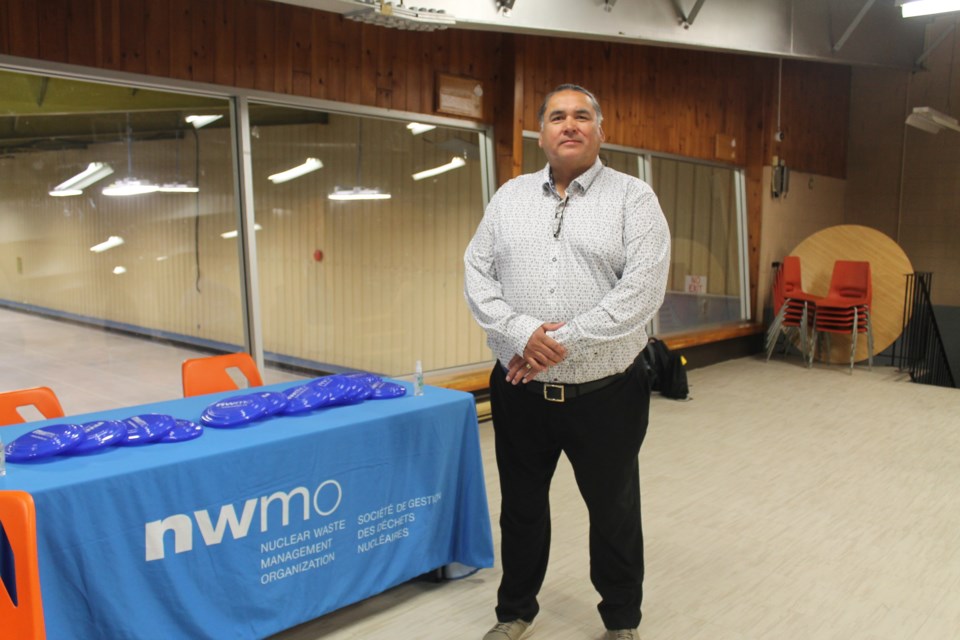IGNACE – With more than 40 years of working in the nuclear industry and Indigenous relations, Joe Heil has spent the last decade in Northwestern Ontario with the Nuclear Waste Management Organization.
“I retired in 2015 after 32 years of working with OPG Ontario Hydro and came to NWMO and have been working up here in this area for the last 10 years trying to get to an informed willing host with Wabigoon Lake Ojibwe Nation.
“We spent the last 10 years engaging with Wabigoon and it’s been a tough journey both for us and for Wabigoon, but I can say that they've had their vote on this, and it was very positive, but I can say that they are an informed yes.
“They know what they're voting on and what this project's about at the end of the day, and to me that was, of all the things I've done, the most significant achievement that I think I've had in my career. It is very rewarding.
“It's implementing this agreement, implementing the work that we've done with Wabigoon at this point in time,” he said.
Heil is one of the first Indigenous nuclear operators in Canada to his knowledge, and holding that title means responsibility to him.
He is a proud member of the Oneida Nation of the Thames, which follows the great law of peace.
“One of the teachings I got from the Anishinabek people is that we have this life journey that we go on. The first part of our life is that we're gathering information, taking the knowledge, that as we get further in our career we give back that knowledge and part it back and we give back the wisdom to others.
“To me, where I am right now in my career, I'm taking all that knowledge and then parting it back . . . That's what it means as Indigenous people, (I am) probably one of the few people that's Indigenous that can say I worked at a nuclear power station.
“I can tell you I’m probably one of the only Indigenous people (to work) on a DGR too, right, and I have that background and so I have a responsibility to share and bring that back and not only with my staff, but for the rest of society. That drives me and that keeps me motivated,” Heil said.
Heil began his career at 20 years old at the Pickering Nuclear Power Station as an operator in training, where he trained for eight years and then became an operator.
“During that time, it was a very great experience and I enjoyed it, but during that time I decided to wanted to do more. I decided to go back to school and so I negotiated an agreement with the company that then had changed to Ontario Power Generation and I went back to school,” he said.
For four years, Heil went to school on weekdays, and worked as an operator on the weekends. He completed his undergraduate degree in native studies and a BSC in science at Trent University.
Upon his graduation from Trent University, he earned a scholarship to Western University to complete a master’s degree in economics.
Heil was still in operations when there was a program of trying to address historical past grievances with the surrounding Indigenous communities.
“Ontario Hydro covered the entire province and OPG took over particularly the hydro generation stations. Most of the stations here in Northern Ontario flooded a lot of reserve lands.
“There was a lot of diversions too, like diversions of the Albany River where Marten Falls is, so we went through a program of trying to redress those past grievances. Some of those grievances going back to the late 1880s and I was employed to actually do that,” he said.
As part of the program letters were sent out to 134 communities in Ontario, asking to reply if there were any issues with Ontario Hydro. Heil said their role was trying to solve the issues, which they did.
There were 99 communities that reported back, with a lot of them having transmission related issues.
Heil mostly dealt with hydroelectric, flooding of reserve lands which included tragic stories. He said most of the development happened in the 30s, 40s, and 50s, where Indigenous people were seen as invisible at best.
“Their issues were not addressed or not taken to account,” he said.
About 25 first Nations that had been flooded in Northern Ontario were addressed and the majority were solved. There were long negotiations taking between three and 18 years, he said.
Heil then became the director of First Nations and Metis relations for OPG.
He said at the end of the day, your career takes up a third of your life.
“We spend a third of our life asleep, a third of our life at work, and a third doing whatever we need to do. A third of that is work, if you're not happy at work, that's a third of your life. You need to make work fun and enjoyable and rewarding at the end of the day.”
